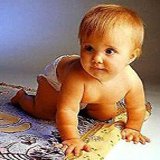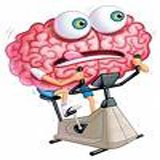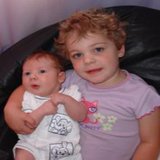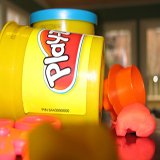Stimulating Child Language Development -
15 Month Old to 18 Month Old
During the child language development phase of 15 month old development - 18 month old development, children start to build their vocabulary steadily as they listen to conversations around them.
Typically he uses several different words a day - and understands the meaning of literally hundreds more - and he begins to form meaningful two-word phrases.
You quickly discover that there is one word that he likes to use himself and yet hates anyone else to use, and that's 'NO'!
Child Language Development
15 - 18 month old
Suitable suggestions for Child Language Development
(15 Month Old - 18 Month Old)
Body Language Eye Contact
To obtain optimal language development in children, making eye contact is very important when chatting to your child.
Encouraging him to maintain body language, eye contact while someone talks to him is a good social skill that will help him mix more effectively with others in the future.
You may find that he is avoiding eye contact and doesn't appear to listen to you, unless he is facing you. So position yourself in a way that ensures you are able to make intense eye contact.
Another hint for child language development: You need to grab his attention when he is staring and eye contact should be made properly to improve his listening skills.
Improve Imagination
At this age their imagination stage is developing fast and you can use this to stimulate child language development.
To improve kids imagination, for instance, you can talk to his toy animals and pretend that they reply to you - tell your child what they say and ask him to speak to them, too. He'll very quickly join in this type of imaginative play toys; soon he will be able to tell you their names and all sorts of things that have appended to them.
Toy telephones serves the same purpose at this age. He'll have great fun prattling away on the phone as he has an imaginary conversation with one of his friends of perhaps with a grandparent or another member of the family.
Be patient with communication
Although your toddler usually has quite a lot to say for himself, there may be times when he is frustratingly slow in communicating his ideas and feelings to you.
Try not to rush him or he will just give up the idea altogether. Relax and let him take his time. He probably simply needs another few moments to find the words that he wants to use. Be as patient with him as you can.
Teaching vocabulary
At this age he starts to learn the names of the various parts of the body. A good time for teaching vocabulary to him is at bath time or when he undresses.
Make this vocabulary exercises informal and enjoyable, perhaps by stroking the palm of his hand when you tell him 'This is your hand' or gently touching his ear when you explain that ' This is your ear'.
The same applies to names of familiar household objects. Instead of saying to your toddler 'Put these away', your could say 'Put these toys in the toy box'. You will help to expand his vocabulary building through your own use of language when you speak to him.
Top Tips for Child Language Development
(15 Month Old - 18 Month Old)
- Point out the names of the primary colors to him.
- Remove distractions when trying to attract his attention.
- Make a tape of familiar sounds.
- Miss out the last word of his favorite song.
- Look closely at your child when he speaks to you.
While he is too young to learn the names of colors, you naming them can help him become aware of the differences between them.
There is absolutely no point in speaking to your toddler when he is totally engrossed in a television program. Switch the set off for a moment while you talk to him.
Tape record everyday sounds, such as a car driving past, a cup filling with water. Watch your child's face to see if he recognizes any of them - go through the tape again explaining each sound.
Sing all the song until you approach the very last word, and then stop. Look at your child with an expression of anticipation on your face - he'll try to say the missing word.
Your toddler speaks because he has something important to say to you. Listen carefully and respond positively, even if much of what he said was unclear.
Top Toys for a 15 Month Old - 18 Month Old
- dolls and cuddly toys
- toy telephone
- plastic cups and saucers
- story books
- bath toys
Be sure to browse through all the language child development pages that is broken down in different age groups.
Read more about the different language development stages.
Find It!
Can't remember where you read something specific? Just type in your search term in the box below and your specific topic will be returned to you instantly.









